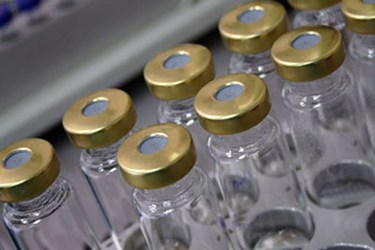3 Advanced U.S. Labs On Standby To Produce Ebola Drugs

Three U.S. facilities with advanced capabilities to quickly produce vaccines and drugs are standing ready to support any decision from the U.S government in response to the Ebola outbreak in Africa, reports Reuters.
Located in Texas, Maryland, and North Carolina, the sites are not set up for drug invention; rather they are set up to quickly develop a process to make and scale up whatever compound is needed in the face of a dangerous outbreak. The three Centers for Innovation in Advanced Development and Manufacturing (ADM) sites were established by the U.S. Department of Health and Human Services and its partners to enable an immediate response to pandemics and other major public health emergencies. The centers’ operations are led by the Biomedical Advanced Research and Development Authority (BARDA) and run because of $400 million in funding from the HHS. This funding enables the centers to be equipped with the necessary equipment and technology to scale up therapeutics production at a faster pace than ordinary. Combined, the three sites have the capacity to deliver at least 50 million doses of vaccine against pandemic influenza.
However, a lower scale of vaccine production would suffice for Ebola virus, says Brett Giroir, chief executive of the Texas A&M Health Science Center site. “Even if Ebola were spreading here, it's not an airborne transmissible disease like influenza so you wouldn't need 50 million doses. At most you'd need a few thousand, maybe a million.” The sites have the expertise to quickly switch production lines to respond to both natural disease outbreaks and bioterrorism.
The Texas facility in particular is equipped with a dozen bus-length mobile sterile rooms fitted with equipment needed for vaccine production. It is the only site among the three that can produce proteins such as human antibodies in plant-based systems, similar to Mapp Biopharmaceutical’s Ebola antibody cocktail ZMapp. As of Tuesday, Mapp declared that its available supply of the antibody has been exhausted. The Texas ADM center collaborates with GlaxoSmithKline, which is also preparing a vaccine against Ebola.
The Maryland facility, led by Emergent Biosolutions, does not have a ready-made Ebola drug. But the site would respond to any government request to produce one, said Adam Havey, president of the company's biodefense division.
The Holly Springs, North Carolina site is also ready to spring into action should its services be needed. Novartis, which leads the facility, stated that it “stands ready, as with previous public health emergencies, to provide scientific support aimed at halting the current outbreak.”
The decision to galvanize any of the three advanced centers into producing treatments against Ebola would come from the top officials of the U.S. government.
